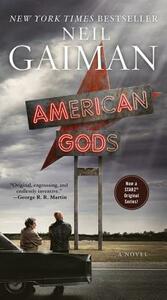Take a photo of a barcode or cover
There is only so many hyper-sexualized descriptions of women I can take.
Also, someone tell me why this writing is dead and emotionless. In the first ten pages his wife is dead and there is nothing? No inner life? Some of the dialogue is fun but damn the POV is absent.
Why so many sex scenes. Why so horny.
Why no plot. Why.
Potential was there. Delivery achingly empty.
Also, someone tell me why this writing is dead and emotionless. In the first ten pages his wife is dead and there is nothing? No inner life? Some of the dialogue is fun but damn the POV is absent.
Why so many sex scenes. Why so horny.
Why no plot. Why.
Potential was there. Delivery achingly empty.
adventurous
dark
slow-paced
Plot or Character Driven:
A mix
Strong character development:
Yes
Loveable characters:
No
Diverse cast of characters:
Yes
Flaws of characters a main focus:
Yes
wow, That was definitely a powerful read-a lot of questions unanswered, but a great story. I need to read Anansi Boys now.
I read this as a teenager and I remember it being sort of silly and gross...
I have many thoughts.
- I think I will end up remembering this book fondly because i really liked the last quarter. I love foreshadowing and random elements that are tied together and are brought back and I love cons and revelations and mystery. I think reading it a second time would add so much to the experience. However I will likely not do that because
- I really did not like most of the set up. So many things added for shock value seemily that didn't add anything to the story (in my opinion) (not even "setting the mood", he does that quite well without the weird sexualisation of literally every woman and the gore that read like someone writing bloody scenes and giggling to themselves "hehehe that'll shock them", so idk what he was getting out this) (it oozes of early 2000s).
- I didn't mind the exposition part but I also found it boring in places. It was good content, bad packaging.
- I did like Shadow. I can totally understand where others are coming from, calling him bland and boring, but I liked his approach and point of view. I liked the way he took decisions on the Low Key and had strength in silence and observation.
I can't quite put my thoughts into words and also I forgot the thoughts I had 500 pages ago yanno.
- I think I will end up remembering this book fondly because i really liked the last quarter. I love foreshadowing and random elements that are tied together and are brought back and I love cons and revelations and mystery. I think reading it a second time would add so much to the experience. However I will likely not do that because
- I really did not like most of the set up. So many things added for shock value seemily that didn't add anything to the story (in my opinion) (not even "setting the mood", he does that quite well without the weird sexualisation of literally every woman and the gore that read like someone writing bloody scenes and giggling to themselves "hehehe that'll shock them", so idk what he was getting out this) (it oozes of early 2000s).
- I didn't mind the exposition part but I also found it boring in places. It was good content, bad packaging.
- I did like Shadow. I can totally understand where others are coming from, calling him bland and boring, but I liked his approach and point of view. I liked the way he took decisions on the Low Key and had strength in silence and observation.
I can't quite put my thoughts into words and also I forgot the thoughts I had 500 pages ago yanno.
My gut response to Neil Gaiman's American Gods is to call it a "Percy Jackson for adults."
In both, gods and "mythical" creatures exist as physical entities in America, and when the protagonists are pushed into this world, they find themselves having to be heroes, navigating war, power, and the trickery of the gods.
But Gaiman's novel goes deeper than the YA Percy Jackson series in both surface content and ideology. For one, the gods in Gaiman's novel are not confined to a single belief system. The major gods come from the Norse pantheon, but Hindu and Greek gods, voodoo priestesses, and creatures like leprechauns and piskies fill the (over 500) pages.
The gods are flawed and vain, but they do seem god-like. They're nearly all-powerful. They can shoot lightning from the sky and cause destruction with a snap of their fingers. They define America.
But in American Gods, America defines them. The gods are reliant on humans, and human belief to keep them alive. Otherwise they'd fade into oblivion. The idea of existence as belief is extremely interesting.
The difference between the new gods of Technology and the old gods also speaks to the culture of America and what we value and believe in. Shadow's magic coin tricks juxtapose magic with true faith as well, which leads to questions of how real gods, if they exist, show their power.
While I felt the major climax was wilted and too easily resolved, and my reading of the Percy Jackson series as a child left the overall premise for this novel not as fresh as it could have been, I still enjoyed the book. It was compelling, gave a different look on various belief systems and old myths, and tackled several complex themes.
In both, gods and "mythical" creatures exist as physical entities in America, and when the protagonists are pushed into this world, they find themselves having to be heroes, navigating war, power, and the trickery of the gods.
But Gaiman's novel goes deeper than the YA Percy Jackson series in both surface content and ideology. For one, the gods in Gaiman's novel are not confined to a single belief system. The major gods come from the Norse pantheon, but Hindu and Greek gods, voodoo priestesses, and creatures like leprechauns and piskies fill the (over 500) pages.
The gods are flawed and vain, but they do seem god-like. They're nearly all-powerful. They can shoot lightning from the sky and cause destruction with a snap of their fingers. They define America.
But in American Gods, America defines them. The gods are reliant on humans, and human belief to keep them alive. Otherwise they'd fade into oblivion. The idea of existence as belief is extremely interesting.
The difference between the new gods of Technology and the old gods also speaks to the culture of America and what we value and believe in. Shadow's magic coin tricks juxtapose magic with true faith as well, which leads to questions of how real gods, if they exist, show their power.
While I felt the major climax was wilted and too easily resolved, and my reading of the Percy Jackson series as a child left the overall premise for this novel not as fresh as it could have been, I still enjoyed the book. It was compelling, gave a different look on various belief systems and old myths, and tackled several complex themes.
adventurous
dark
reflective
medium-paced
Plot or Character Driven:
Character
Strong character development:
Complicated
Loveable characters:
Yes
Diverse cast of characters:
Yes
Flaws of characters a main focus:
Complicated
So awful I couldn’t finish reading it. Dude has no coherent writing styling, flat characters, and I’m pretty sure he only reason he wrote it is so he could write ridiculous sex scenes.
In Neil Gaiman’s introduction of this book, he said that readers either loved it or hated it. At that time, I anticipated that I would be a part of the former group, and here we are.
I just really vibe with this type of writing. I really connected with the characters; they feel very understandable and well developed. I liked how much random stuff was always happening; a lot of it tied together later, and in the moment it still felt fun and exciting. I liked how the whole thing felt strange and mystical; it made the messages of the book like a secret that you were discovering as you went along.
Will I read the sequel?…hmm. Maybe.
I just really vibe with this type of writing. I really connected with the characters; they feel very understandable and well developed. I liked how much random stuff was always happening; a lot of it tied together later, and in the moment it still felt fun and exciting. I liked how the whole thing felt strange and mystical; it made the messages of the book like a secret that you were discovering as you went along.
Will I read the sequel?…hmm. Maybe.




